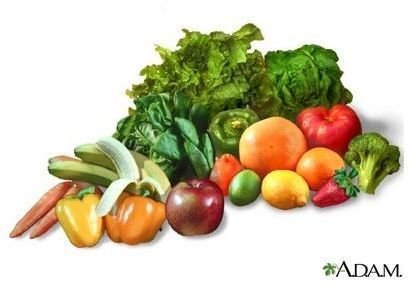Diet for IBD (Inflammatory Bowel Disease)
IBD

IBD, including ulcerative colitis and Crohn’s disease, is a chronic inflammatory disorder of the intestines. Acute abdominal pain, diarrhea, cramping, fever, and fatigue are common symptoms of IBD. A healthy diet is essential in managing IBD to prevent extreme weight loss and malnutrition.
Diet for IBD
Food Allergies
Removing offending foods from the diet (elimination diet) can be an effective treatment for some individuals with IBD. Foods most likely to be the culprit are wheat and dairy products.
Nutritional Deficiency
Many people with IBD become deficient in nutrients. This can be due to a decrease intake of food because of pain, an unhealthy diet, or malabsorption.
It is important for people with IBD to correct nutritional deficiencies. Deficiencies can alter gastrointestinal structure and function. This causes a vicious cycle because it further decreases absorption of vital nutrients.
During flare-ups, eat small frequent meals.
People with IBD should take a high-quality multivitamin-mineral supplement that includes all known vitamins and minerals. Vitamin C and vitamin E are especially important because both are powerful antioxidants.
Fiber
When the condition is under control, a high-fiber diet is recommended. Vegetables are an excellent source of fiber. Steamed vegetables are preferred over raw vegetables by some individuals with IBD.
During a flare-up, high-fiber foods should be limited.
Elemental Diet
An elemental diet may be recommended by a doctor or dietitian when a person with IBD is having an acute episode. An elemental diet is a liquid diet containing nutrients that can be absorbed without requiring digestion.
Other considerations regarding diet for IBD:
- consume a diet that focuses on whole, unprocessed foods (including whole grains, fruits, vegetables, legumes, nuts, and seeds)
- limit saturated fats and avoid trans fats (including hydrogenated oils)
- include flaxseed oil and fish oil in your diet
- avoid caffeine, alcohol, and sugar
- limit gas-producing foods.
Disclaimer
Please read this disclaimer regarding the information contained within this article.